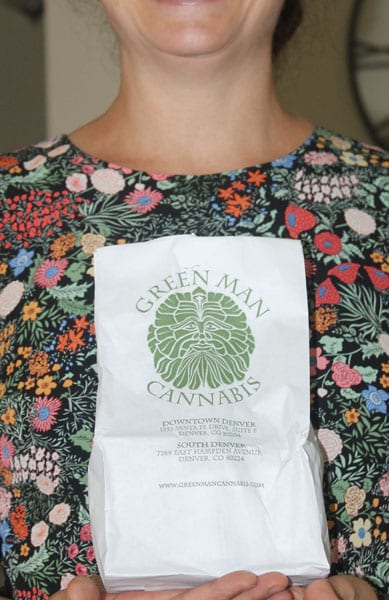Colorado Rocky Mountain High

Earlier this month, I visited Colorado for the first time since the ban was lifted.
Same-sex marriage? Eh. That’s old hat in Colorado. I’m talking about the ban on recreational marijuana that was lifted last year.
Colorado voters overwhelming decided to legalize recreational marijuana. Despite this being a very regulated new industry, there are now more pot stores — I’m sorry, Colorado, I mean cannabis dispensaries — than there are Starbucks or McDonald’s restaurants in the state. The state’s a little touchy about how we reefer, I mean refer, to their huge new industry.
The state’s raking in the bucks. With a prescription, purchasers of medical marijuana pay just the sales tax. Recreational users, however, pay sales tax plus any state and local tax. In Denver, that means 20.5 percent tax.
I was in Colorado to visit family. We converged on a cousin who lives south of Denver and relatives came from Mississippi, California and London. Us out-of-staters decided we had to visit one of the state’s newest attractions. Oh, we made it to Garden of the Gods in the hills below Pike’s Peak. And we crossed the Continental Divide, drove over mountains more than two miles high in Rocky Mountain National Park, photographed marmots, elk and mountain sheep and shopped in Boulder and Estes Park.
But our visit to Green Man Cannabis in Denver was, well, fascinating.
Of course, I wasn’t buying any for myself. The trip was entirely inspired by one of my cousins. Really.
First, find a location. Basically, if you’re in Denver and there’s a shopping center, you’ll find a dispensary. They’re out, they’re open, and they have big, well marked signs.
Next, you must show ID. Colorado residents may purchase up to an ounce a day. Out-of-staters may purchase ¼ ounce in a single transaction.
With IDs checked, pass through the door to the dispensary. Stoners — I mean salespeople — have the product behind the counter. These salespeople are well educated about their product. Our saleswoman had quite extensive personal experience with the products she was selling. Any retailer would be proud to have salespeople with such good product knowledge. I wouldn’t be surprised if she had actually sampled much of the product in order to enhance her selling ability.
In their bid for professionalism, the weed stores — I’m sorry, cannabis dispensaries — have an entirely new lingo. They don’t sell pot brownies. Instead, there’s a variety of “edibles” — hard candies, cookies, chews, drinks and tincture. They don’t sell reefers, but you can buy pre-rolled product. You can also purchase topicals: “medicine that can be applied directly to the skins surface for muscle and joint pain as well as skin irritation relief.”
And of course there are cannabis varietals that are displayed in clumps in glass jars. Our saleswoman did a good job of explaining the difference between each of the samples and recommended just what she thought we — I mean my cousin — would enjoy.
She was also clear on the law. The business is strictly regulated. My cousin was leaving the state the next day. No, she shouldn’t pack it in her suitcase. Pot is strictly forbidden on federal property. That means don’t bring it to national parks, national forests, federal court buildings or airports.
Even though the city of Denver operates Denver International Airport and Denver police are responsible for its safety, federal law is followed. So Denver police who have more important things to do will reluctantly — pot tax is where their next raise will come from — arrest anyone caught with weed in the airport. And they use sniffer dogs, although we didn’t see any at the airport.
Interestingly the ban on bringing pot into a federal court building implies it’s perfectly fine to bring it into a county courthouse.
The law prohibits smoking in public. That’s why edibles have become so popular. There are no laws about sucking on candy in public. And there are DUI laws with a legal limit for THC in the blood while driving.
According to one anonymous source — OK, according to one cousin who lives in Colorado — quite a few dispensaries opened and closed quickly. The remaining ones are run by serious business people, many of whom are now expanding to multiple locations.
In January 2014, pot sales began slowly and the state only collected about $3 million in tax revenue. By July 2015, marijuana tax revenues topped $10 million for the first time.
The state and the dispensaries are having a problem, however — where to put their money. Banks are federally chartered and regulated and have been reluctant to take deposits from dispensaries or even from the state, because they could be seen as laundering drug money.
And the rest of the trip? You owe yourself a drive through Rocky Mountain National Park.
















